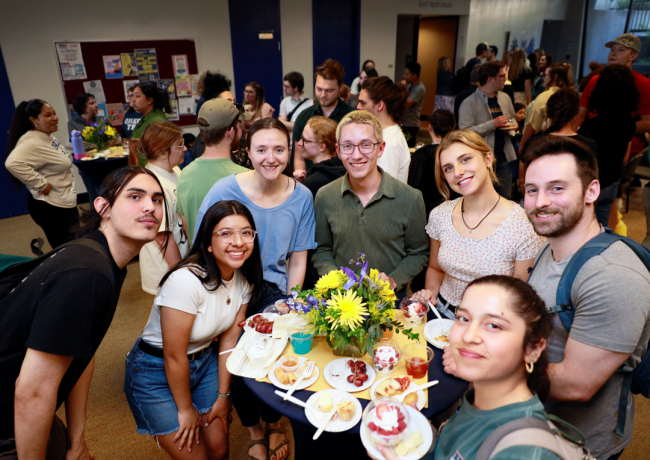You have /5 articles left.
Sign up for a free account or log in.

Oregon Tech Leadership and Diversity Scholars participate in a scholar reception every term to network and connect.
Oregon Institute of Technology
Community and cultural engagement are cornerstones in a student’s development and overall postgraduate success.
To promote student success, Oregon Institute of Technology reimagined its Leadership and Diversity Scholarship to prioritize cultural engagement, identity and differing perspectives.
The scholarship: The Leadership and Diversity Scholarship program has existed at Oregon Tech since 2005 and engages around 60 scholars across campuses in Klamath Falls and Portland-Metro, as well as at the institution’s Chemeketa Community College and Boeing sites.
The scholarship is a multiyear program open to all undergraduate students with a 2.75 GPA or higher. A student’s background, involvement on campus, first-generation status and financial need are also considered in eligibility.
A new focus: Recent National Survey of Student Engagement findings told Oregon Tech officials that the institution scored below average, compared to other institutions, in terms of students reflecting on their cultural identity and skills for engaging in cross-cultural dialogue.
“To improve those scores, we believed it would be beneficial to revamp what the scholars were doing to have more intentional conversations about personal cultural identity, along with having these scholars attend educational events to learn more about cultural engagement,” says Shawni Cayetano-Ramos, associate director of student leadership development and cultural engagement.
In 2021, Oregon Tech staff removed a community service requirement and replaced it with meetings and events related to diversity, cultural engagement and leadership.
Put in practice: Previously, to maintain their status as scholarship recipients, students completed 90 hours of community service and one check-in with a staff member during the academic year.
Now, students attend a meeting with Student Involvement office staff each term, which is an intentional conversation about leadership, self-development and identity. Students must also attend three workshops, activities or events around diversity and leadership, plus complete a reflection essay on what they gained or how their perspective changed, Cayetano-Ramos says.
Events have included LGBTQ+ Allyship Trainings, any cultural or identity-based club meeting, events for cultural identity months like Black History Month, conferences for academic or social development, antiracism trainings, and engaging with leadership-focused media, like podcasts or movies.
The scholars also attend a reception with their peers once per term to network and build social capital with one another.
The impact: Staff have administered surveys before and after the program change among scholars to evaluate the impact. Student reflections also captured whether students met learning outcomes established at the beginning of the year.
Since the reimagining of the program, students have shared that, in participating, they learned more about themselves, felt more connected and involved on campus, attended different types of events, and gained a sense of belonging in the community.
This story was submitted to us from a reader just like you! Share your student success initiatives with us here.




